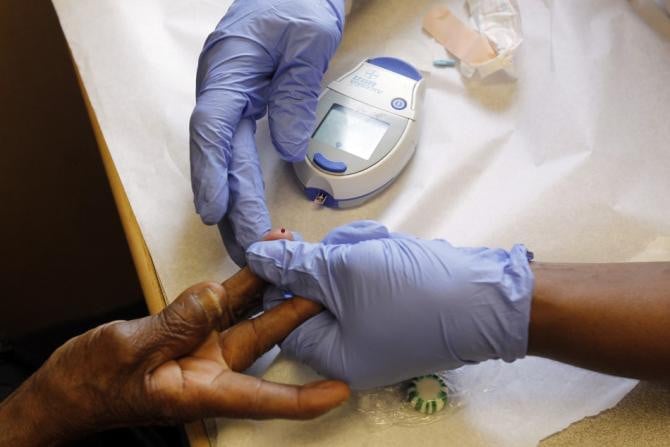
Chinese researchers discover first ever cure for type 2 diabetes
In a groundbreaking medical achievement, Chinese academics have claimed to have cured type 2 diabetes for the first time, Diabetes.co.uk reports. This milestone was achieved through a pioneering cell transplant procedure conducted on a 59-year-old man in 2021. Since undergoing the life-changing treatment, he has been medication-free for 33 months. The treatment involved the development of artificial cells, mirroring those in the pancreas that are responsible for insulin production and blood sugar regulation. The patient, who had been battling diabetes for 25 years, had nearly lost all function of these insulin-producing cells, known as islets. His condition necessitated multiple daily insulin injections to avoid the risk of a diabetic coma. Type 2 diabetes can be put into remission but this case represents the first instance of a cure, according to the researchers. The team tested a novel chemical cocktail that transformed stem cells into various tissue types, including pancreatic cells. These lab-grown cells enabled the man to produce insulin autonomously once more, significantly improving his condition. Read also: Game Changer for Diabetics? Chinese Study Shows Early Insulin Boosts Type 2 Control Professor Timothy Kieffer, a renowned expert not involved in the study, lauded the findings, stating, “This study represents an important advance in the field of cell therapy for diabetes. After testing it on more people, they’ll need to scale up their operation.” Despite the promising results, the process of converting stem cells into functional pancreas cells remains complex, costly, and time-consuming. The researchers noted that individuals with type 1 diabetes might face greater challenges due to potential immune system rejection of the implanted cells. Dr Yin Hao, the study's first author, expressed optimism about the technology's potential, saying, “Our technology has matured and pushed boundaries in the field of regenerative medicine for the treatment of diabetes.” Echoing this sentiment, Professor Kieffer concluded, “This therapy may free people from the burden of chronic medications, improve health and quality of life, and reduce healthcare expenditures.”

In a groundbreaking medical achievement, Chinese academics have claimed to have cured type 2 diabetes for the first time, Diabetes.co.uk reports. This milestone was achieved through a pioneering cell transplant procedure conducted on a 59-year-old man in 2021. Since undergoing the life-changing treatment, he has been medication-free for 33 months. The treatment involved the development of artificial cells, mirroring those in the pancreas that are responsible for insulin production and blood sugar regulation. The patient, who had been battling diabetes for 25 years, had nearly lost all function of these insulin-producing cells, known as islets. His condition necessitated multiple daily insulin injections to avoid the risk of a diabetic coma. Type 2 diabetes can be put into remission but this case represents the first instance of a cure, according to the researchers. The team tested a novel chemical cocktail that transformed stem cells into various tissue types, including pancreatic cells. These lab-grown cells enabled the man to produce insulin autonomously once more, significantly improving his condition. Read also: Game Changer for Diabetics? Chinese Study Shows Early Insulin Boosts Type 2 Control Professor Timothy Kieffer, a renowned expert not involved in the study, lauded the findings, stating, “This study represents an important advance in the field of cell therapy for diabetes. After testing it on more people, they’ll need to scale up their operation.” Despite the promising results, the process of converting stem cells into functional pancreas cells remains complex, costly, and time-consuming. The researchers noted that individuals with type 1 diabetes might face greater challenges due to potential immune system rejection of the implanted cells. Dr Yin Hao, the study's first author, expressed optimism about the technology's potential, saying, “Our technology has matured and pushed boundaries in the field of regenerative medicine for the treatment of diabetes.” Echoing this sentiment, Professor Kieffer concluded, “This therapy may free people from the burden of chronic medications, improve health and quality of life, and reduce healthcare expenditures.”
